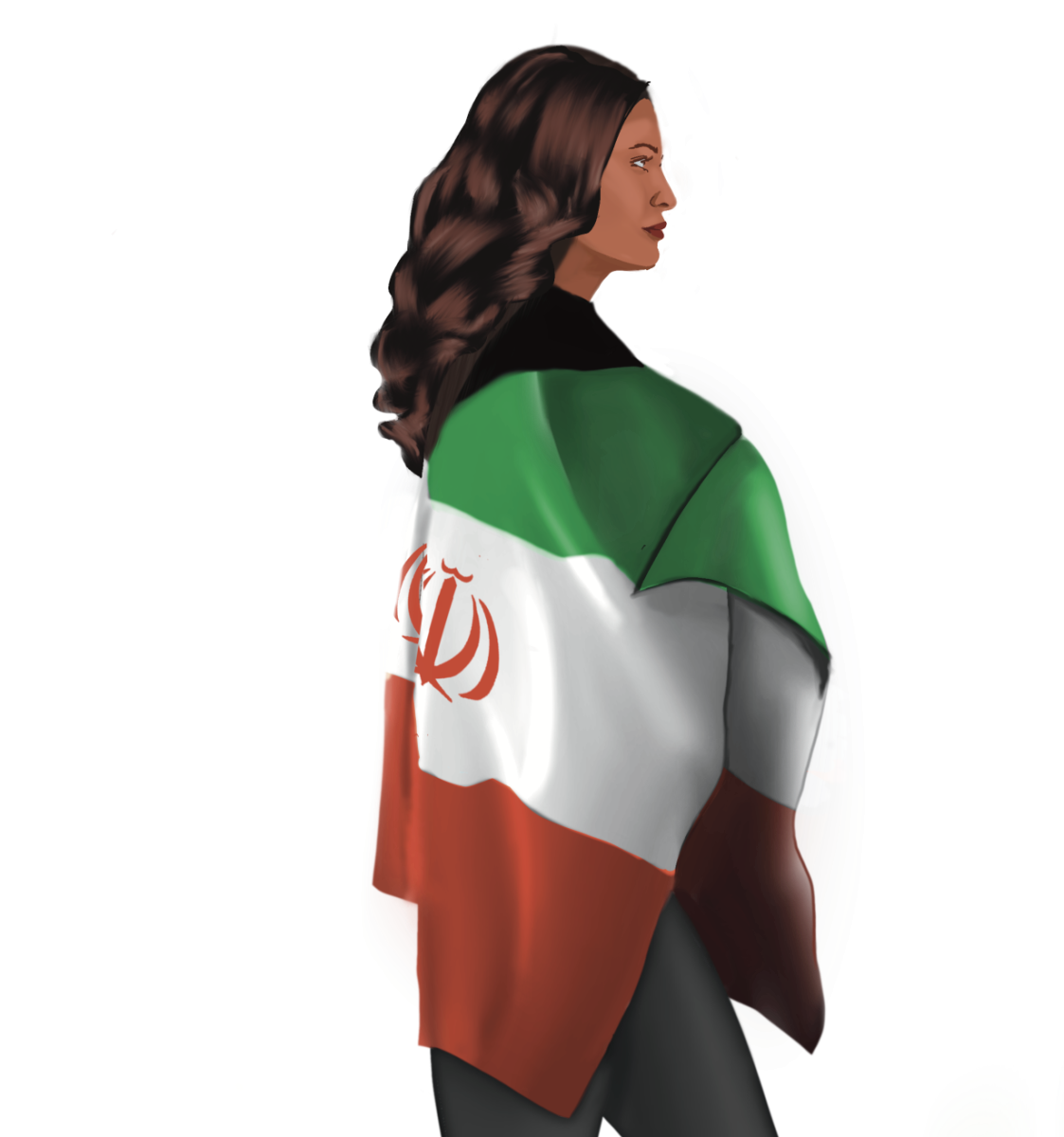“Oh really? That sucks.”
That was the reaction of a middle school classmate when I told her where my family is
from. This, plus many other experiences throughout my life, have made it much harder for me to be proud of my culture.
Iran carries some negative associations with it, most of them for good reason.When people think of Iran, some associations immediately come to mind: images of hundreds of anti-West demonstrators gathering to burn the American flag, women being beaten for showing half an inch of hair and rampant inflation making one dollar equivalent to 66,000 toman. While there are anti-Western Iranians, women are stripped of personal freedoms and skyrocketing inflation making affording basic necessities nearly unattainable, the media often fails to paint a balanced picture of what’s happening. News tends to focus on negative headlines: wars and revolutions, but rarely delves into history and culture. While much of what western news shows is true, there is a hidden side to the country and my culture that is harder to see. Iran’s history has been marred with wars, revolutions and protests. According to Britannica, the Islamic Revolution began in 1978 with the overthrowing and removal of the Shah. The new Islamic government enforced dress codes, like mandatory head coverings for women.
It was also during this time that the Iranian hostage crisis gripped the United States, as 52 American hostages were held in the U.S. embassy for 444 days. This event has shaped the relationship and dynamics between the U.S. and Iran, both politically and culturally.
Curious people have asked me probably a hundred questions on why I’m not a Muslim, why I don’t wear a hijab, if my dad has multiple wives and if I like bacon.
Up until second grade I didn’t get many questions about my culture because my conversations were dominated by talks of Polly Pockets and four square. Still, I remember feeling like I was different, especially because of my name. For months, I begged my parents to call me Saige after the American Girl doll of the year. Later on, as the questions I got asked started to ramp up, I got more defensive. Any question about Iran, genuine or not, would send me into a fit of rage, with my entire goal being to educate my fourth grade classmates of their ignorance. This phase was isolating and exhausting and ended fairly quickly. For years, I was avoidant of the topic, refusing to tell people where my family was from. When people would ask me where my family was from or what my name meant, I attempted to awkwardly change the subject. I would avoid telling my classmates why I had missed class for Persian holidays, worried about the follow-up questions they might ask.
Throughout my life, I have had many opportunities to learn about and appreciate my culture, like visiting Iran and celebrating Persian New Year each year. I met so many people in both Iran and the U.S. that were unapologetically confident in themselves and their heritage.
I realized after this that most people were not interested in a long-winded discussion on Iranian history. I also recognized that it was too mentally taxing for me to constantly switch between being openly proud of my culture, solely based on what was happening in Iran at the time. After all my experiences throughout the years, I realize now that my pride for my culture doesn’t need to be tied to the actions of the country itself. Through all the ups and downs in Iran over the years, my pride for my culture doesn’t need to waver.



